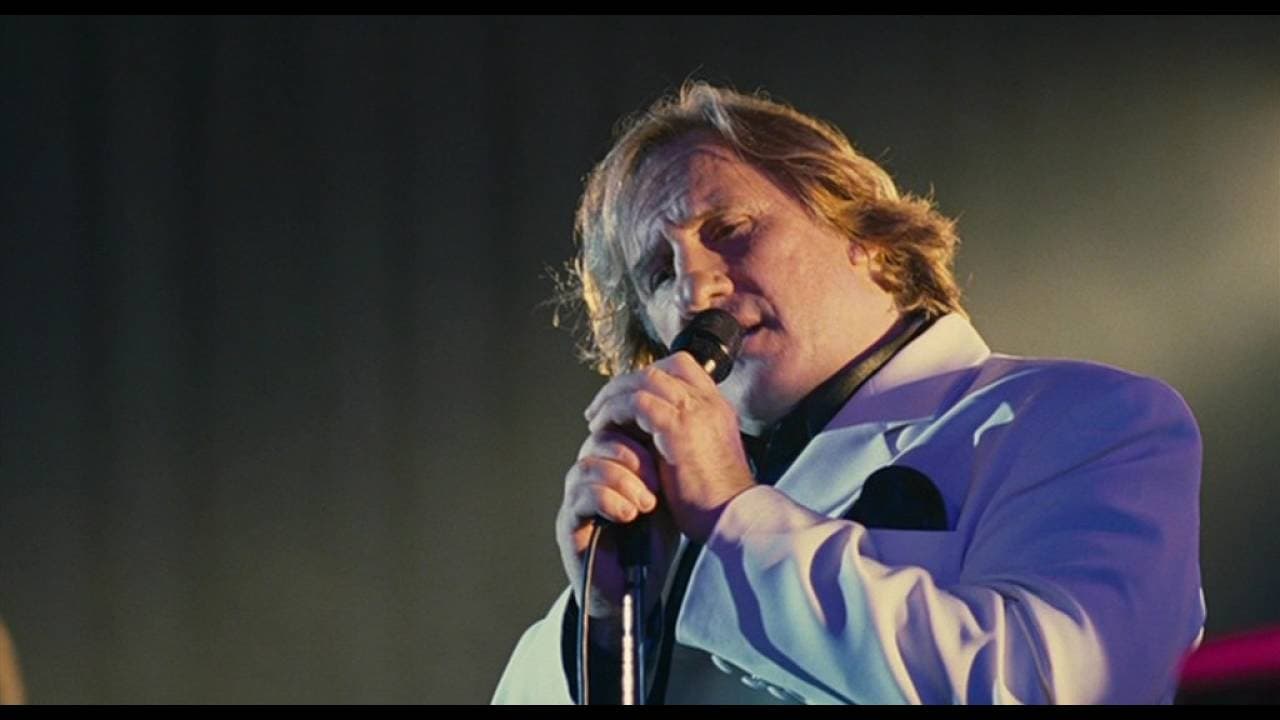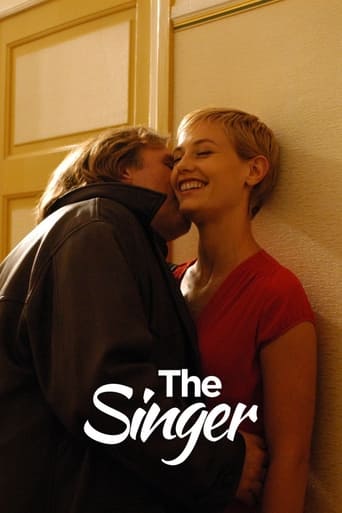

Very well executed
... View MoreEntertaining from beginning to end, it maintains the spirit of the franchise while establishing it's own seal with a fun cast
... View Moreif their story seems completely bonkers, almost like a feverish work of fiction, you ain't heard nothing yet.
... View MoreWhile it doesn't offer any answers, it both thrills and makes you think.
... View MoreIf you heard the director in the extras, the movie is about the power of music to inspire, to heal, the heart of true artists.Now, forget all this: the movie drags behind those expectations.If French movies (unlike Americans) are much closer to the people, the big defect of our movies is that french writers (unlike Americans) have no imagination: hence, french movies is often people simply talking in a house and that's what really happens here as Cecile plays a realtor and his client, Gerard the singer, doesn't even care about houses: this is his way to have date with her. Singing is treated with the same treachery. In fact, it's more about the love of two depressive people and i realize that in that situation, their romance is also depressive. To cast Cecile is thus unfortunate because it extinguish her fire and smiles. I won't comment the absurdity of their first night (so unreal that you cant believe their following romance) to keep the only good song that i discovered again thanks to the movie: "Je n'aurais pas le temps". It's a wonderful song about our mortality and the endless beauty of life, all that the movie isn't.
... View MoreWe watched this lovely film on TV last night and both of us enjoyed it tremendously. I judge films by how memorable they are; even good films that are appreciated at the time disappear in my, admittedly, porous memory but this film for some reason cemented itself in my memory immediately. I admit that I enjoy films about male/female relations or the lack thereof if that is the case; the French are the planet's masters of this examination of the human condition and they do it very well. The Singer is an examination of that most sensitive of times in relationships: the period of discovery, before people understand what is happening to them, whether there is enough glue to hold this tentative relationship together. I thought that the director knew exactly what he wanted his actors to do and their professionalism allowed them to play these most sensitive of roles so well. As you can imagine there are no huge points of realization or transcendence in this beautifully played out examination: nothing that we have been led to expect from Hollywood, just quiet, introspective searching and waiting to see if the puzzle pieces fall into place as the singer hopes they will. As you can see, the movie is an examination of these two people very tentatively feeling each other out to see if they have a future. The viewer's joy is watching this endearing and gentle examination. I found the movie a tremendous viewing experience but very tentative, very gentle and very knowing.
... View More'Quand j'étais chanteur' (or 'The Singer') is a lovely, funny, bittersweet film which gives Gérard Depardieu an excellent leading role as cynical, arrogant, washed-up singer Alain Moreau, who sings love tunes for middle-aged lady dancers who adore him. He meanwhile searches for love and finds something akin to it in the person of damaged, deep, prickly Marion (Cécile De France), many years his junior and out of his league.Depardieu, even approaching his sixties, brings a mix of bravado, charm, and vulnerability to the character of Moreau. Sometimes you can see where he is coming from, sometimes you sympathise, sometimes you laugh, sometimes you are irritated - a well rounded character, believable, and just that little bit broken from a lost chance to rebuild a marriage, the idea that he just might be a nicer guy than the ladykiller he has become.With Mathieu Amalric as Bruno, friend, estate agent, adversary, and Christine Citti as Michèle, former wife and backing singer, muse and manager, 'The Singer' is an intimate portrait of where life can take you if you just stop and let it. It does not shy away from poignancy and the ubiquitous happy ending, but on the way it makes its creations real and their problems and preoccupations realistic.The songs, incidentally, are sung by Depardieu and although the lyrics may be lacking in style (certainly in their translation), the delivery and ambiance proves there may well be life in the old dog yet, making it understandable why Moreau has become the obsession and fixation of lonely single, divorced, or widowed women. But under the gloss and the stagecraft is someone just as lonely, just as envious of the passing of time, and this is the ultimate strength of the film, making that obvious.
... View MoreI saw this film this afternoon at the London Fim Festival and loved it. You clearly got a sense of a singer in the twilight of his career observing either younger singers much better than understanding the needs of the audience than himself, or realising that his companions from years ago have done much better than he has.I sometimes felt that we were watching two stories, one about the Singer and another about the younger woman. Each had baggage, both were drawn to each other in ways they did not expect.go see this if you get the chance, and stay and watch the credits to find a few extras thrown in.
... View More